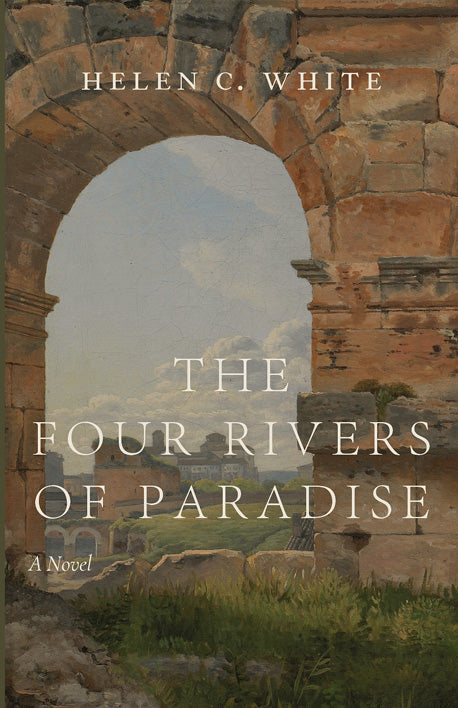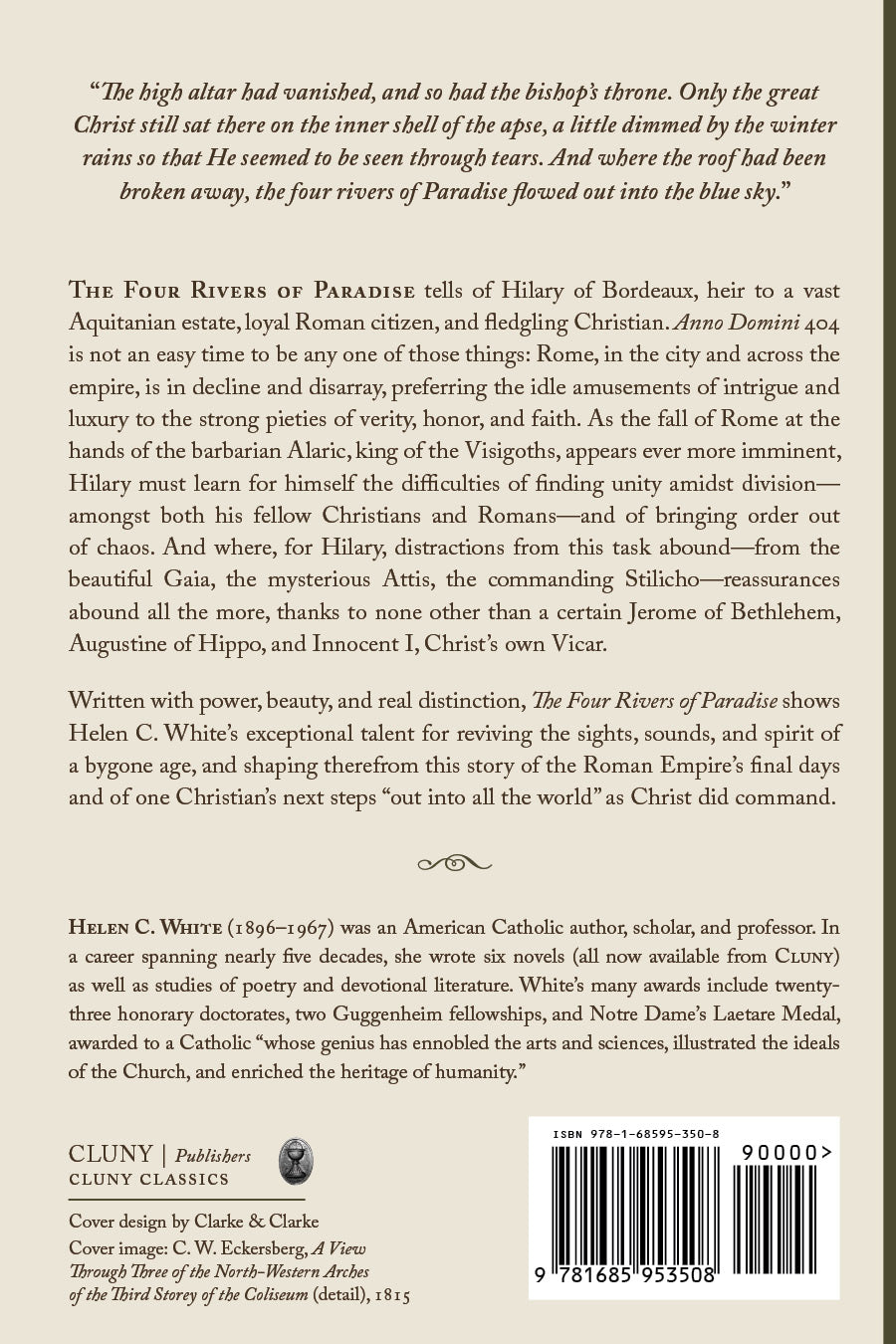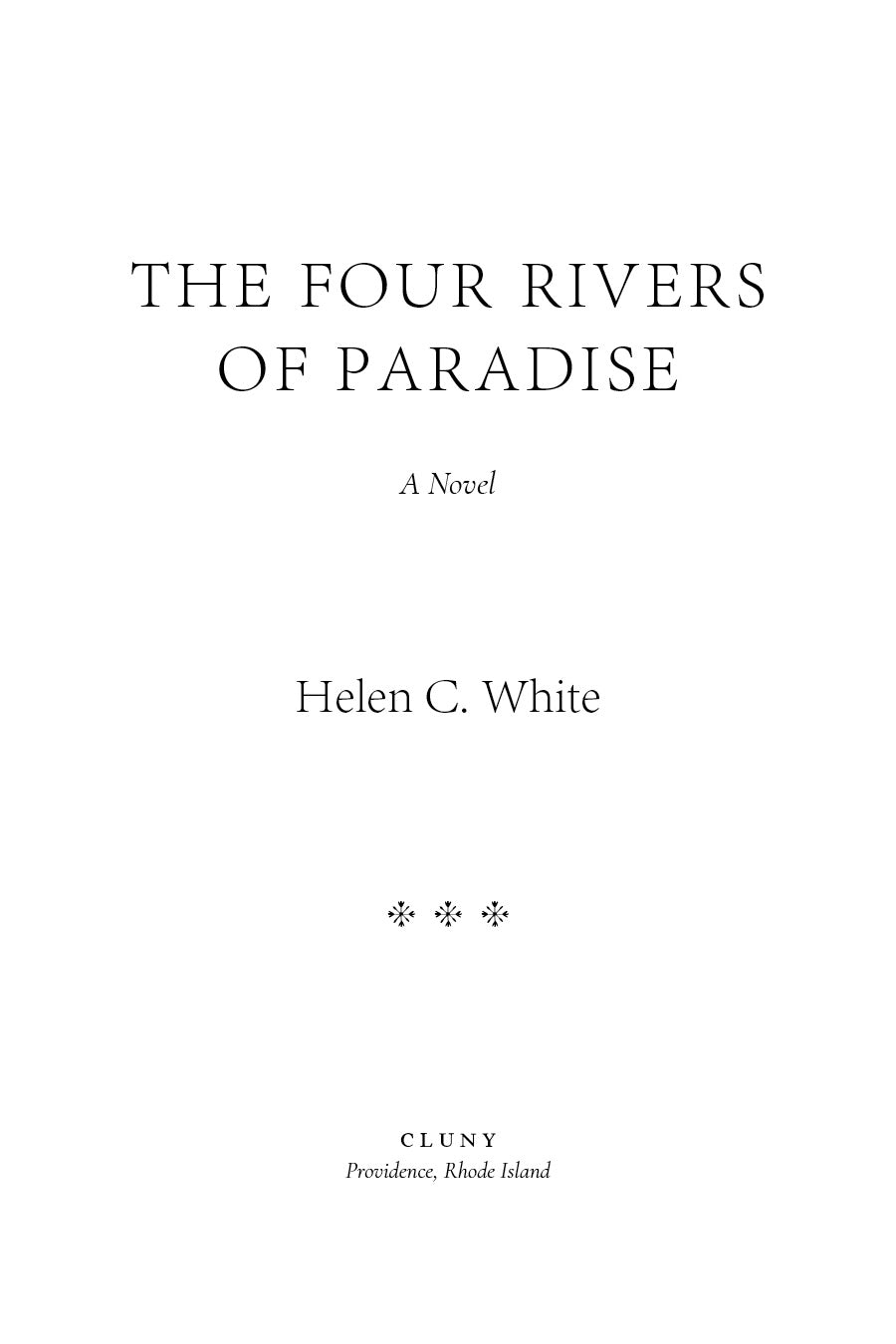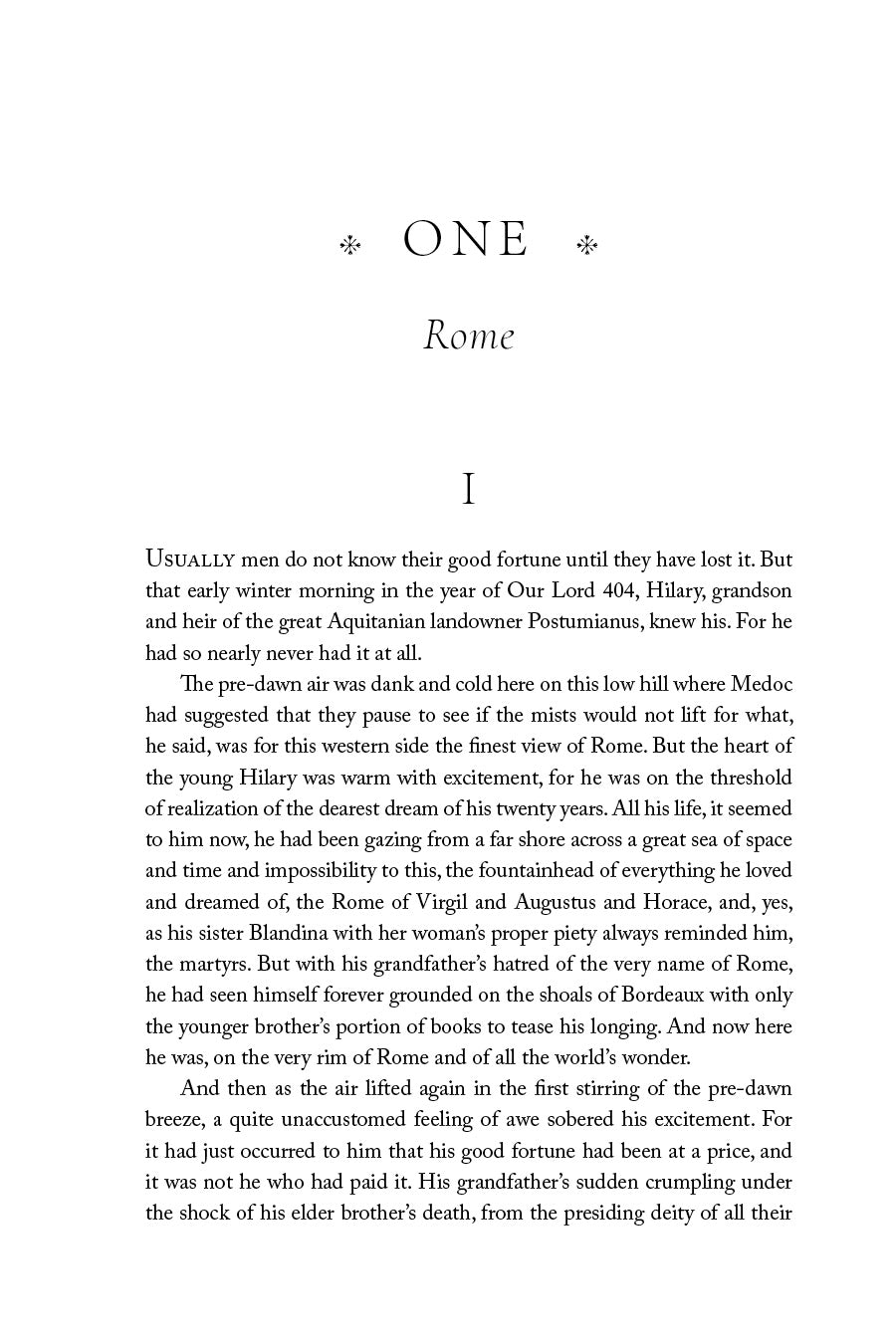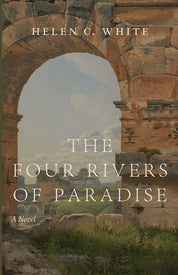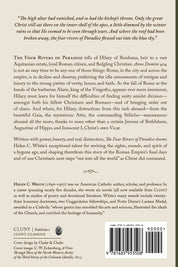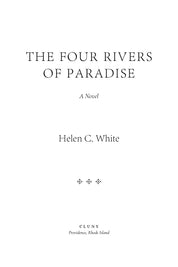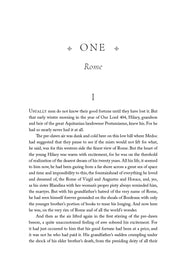The Four Rivers of Paradise
By Helen C. White
The Four Rivers of Paradise tells of Hilary of Bordeaux, heir to a vast Aquitanian estate, loyal Roman citizen, and fledgling Christian. Anno Domini 404 is not an easy time to be any one of those things: Rome, in the city and across the empire, is in decline and disarray, preferring the idle amusements of intrigue and luxury to the strong pieties of verity, honor, and faith. As the fall of Rome at the hands of the barbarian Alaric, king of the Visigoths, appears ever more imminent, Hilary must learn for himself the difficulties of finding unity amidst division—amongst both his fellow Christians and Romans—and of bringing order out of chaos. And where, for Hilary, distractions from this task abound—from the beautiful Gaia, the mysterious Attis, the commanding Stilicho—reassurances abound all the more, thanks to none other than a certain Jerome of Bethlehem, Augustine of Hippo, and Innocent I, Christ’s own Vicar.
Written with power, beauty, and real distinction, The Four Rivers of Paradise shows Helen C. White’s exceptional talent for reviving the sights, sounds, and spirit of a bygone age, and shaping therefrom this story of the Roman Empire’s final days and of one Christian’s next steps “out into all the world” as Christ did command.
“The high altar had vanished, and so had the bishop’s throne. Only the great Christ still sat there on the inner shell of the apse, a little dimmed by the winter rains so that He seemed to be seen through tears. And where the roof had been broken away, the four rivers of Paradise flowed out into the blue sky.”
Helen C. White (1896–1967) was an American Catholic author, scholar, and professor. In a career spanning nearly five decades, she wrote six novels (all now available from Cluny) as well as studies of poetry and devotional literature. White’s many awards include twenty-three honorary doctorates, two Guggenheim fellowships, and Notre Dame’s Laetare Medal, awarded to a Catholic “whose genius has ennobled the arts and sciences, illustrated the ideals of the Church, and enriched the heritage of humanity.”
* * *
Paperback: 234pp.
ISBN:

